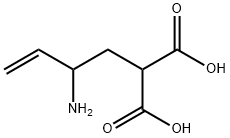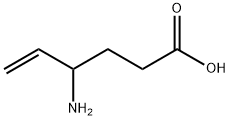2-(2-aminobut-3-enyl)propanedioic acid , 0.95 , 1378466-25-1
Synonym(s):
2-[(2RS)-2-Aminobut-3-enyl]propanedioic acid
PRODUCT Properties
| Boiling point: | 420.1±45.0 °C(Predicted) |
| Density | 1.303±0.06 g/cm3(Predicted) |
| pka | 2.58±0.34(Predicted) |
| InChI | InChI=1S/C7H11NO4/c1-2-4(8)3-5(6(9)10)7(11)12/h2,4-5H,1,3,8H2,(H,9,10)(H,11,12) |
| InChIKey | AIFHTSLGFACKRW-UHFFFAOYSA-N |
| SMILES | C(O)(=O)C(CC(N)C=C)C(O)=O |
Description and Uses
2-(2-aminobut-3-enyl)propanedioic acid is a naturally occurring non-protein amino acid, also known as l-allyl glycine. This acid is involved in various metabolic processes and is found in many plants, animals, and microorganisms. In 1931, Heilbron and Hodge first identified the L-allylglycine component in plant extracts. At the time, researchers noted that L-allyl glycine is a very potent inhibitor of alanine aminotransferase, and later found that it also inhibits cystathionine γ-synthetase.
2-(2-Aminobut-3-enyl)malonic Hydrochloric Acid, is a derivative of Vigabatrin (V253000), which is an antiepileptic drug that inhibits the catabolism of gamma-aminobutyric acid (GABA) by irreversibly inhibiting GABA transaminase.




